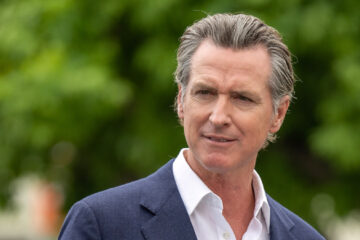After years of revenge vacations, luxury getaways, and influencer-curated itineraries, a different kind of travel is surging — and it has nothing to do with five-star hotels or first-class flights. Instead of indulgence, today’s travelers are prioritizing something more personal.
This shift isn’t subtle.
From infrared sauna retreats to sleep-optimized hotel suites and nature immersion programs, wellness travel is booming. It’s no longer just about escaping — it’s about healing, resetting, and recharging.
And this time, it’s not just yoga devotees or affluent retirees leading the charge. Younger travelers are also fueling the trend, choosing digital detoxes over bar crawls or beach clubs.
They’re also willing to spend more to feel better. Travelers are trading luxury for intention — and often paying a premium to do so.
Travelers are trading indulgence for intention.
Image source: Shutterstock
Spending shifts to ‘wellthy’ experiences
Wellness travel isn’t just a trend — it’s a thriving industry. According to the Global Wellness Institute, the global wellness tourism market reached $868 billion in 2023 and could grow to $1.4 trillion by 2027. Travelers focused on wellness also tend to spend significantly more. International wellness tourists spend 41% more per trip than the average tourist, while domestic wellness travelers spend 175% more, according to the same report.
But they’re not spending on luxury suites or fancy dinners. Instead, they’re paying for things like sound baths, hormone health coaching, and IV drips. It’s not about status — it’s about feeling better, living longer, and avoiding burnout. One traveler on Reddit put it simply: “I didn’t want a vacation that left me needing another vacation.”
💵💰Don’t miss the move: Subscribe to TheStreet’s free daily newsletter💰💵
This kind of travel now goes far beyond yoga retreats and spa weekends. High-end resorts such as Six Senses, Miraval, and Aman are offering full wellness programs focused on sleep, recovery, and longevity. On the other end of the spectrum, more affordable, minimalist retreats are popping up for people who want to unplug in nature or try cycle syncing.
And it’s not just older, wealthy travelers driving this shift. Millennials and Gen Z are accelerating the growth, often choosing wellness-focused trips over traditional vacations. Even big brands are jumping in: Airbnb is testing wellness-themed stays, Equinox launched its own wellness hotel, and hotels like Hilton and Hyatt are adding meditation tools and spa packages to their offerings.
A growing market is changing how people spend
This is more than a travel trend — it’s a mindset shift. As burnout rises and remote work blurs the line between home and hustle, people want more from their time off than a beach and a buffet. They aim not only to relax, but also to feel better.
For travel brands and investors, the message is clear. The money is moving toward intentional wellness experiences, not just luxury. The consumers driving this growth aren’t chasing exclusivity — they’re seeking longevity, balance, and peace of mind.
And if that means spending a little more on a cold plunge and a breathwork class instead of champagne and shopping? So be it. Because for more and more travelers, that’s what a good trip looks like now.


